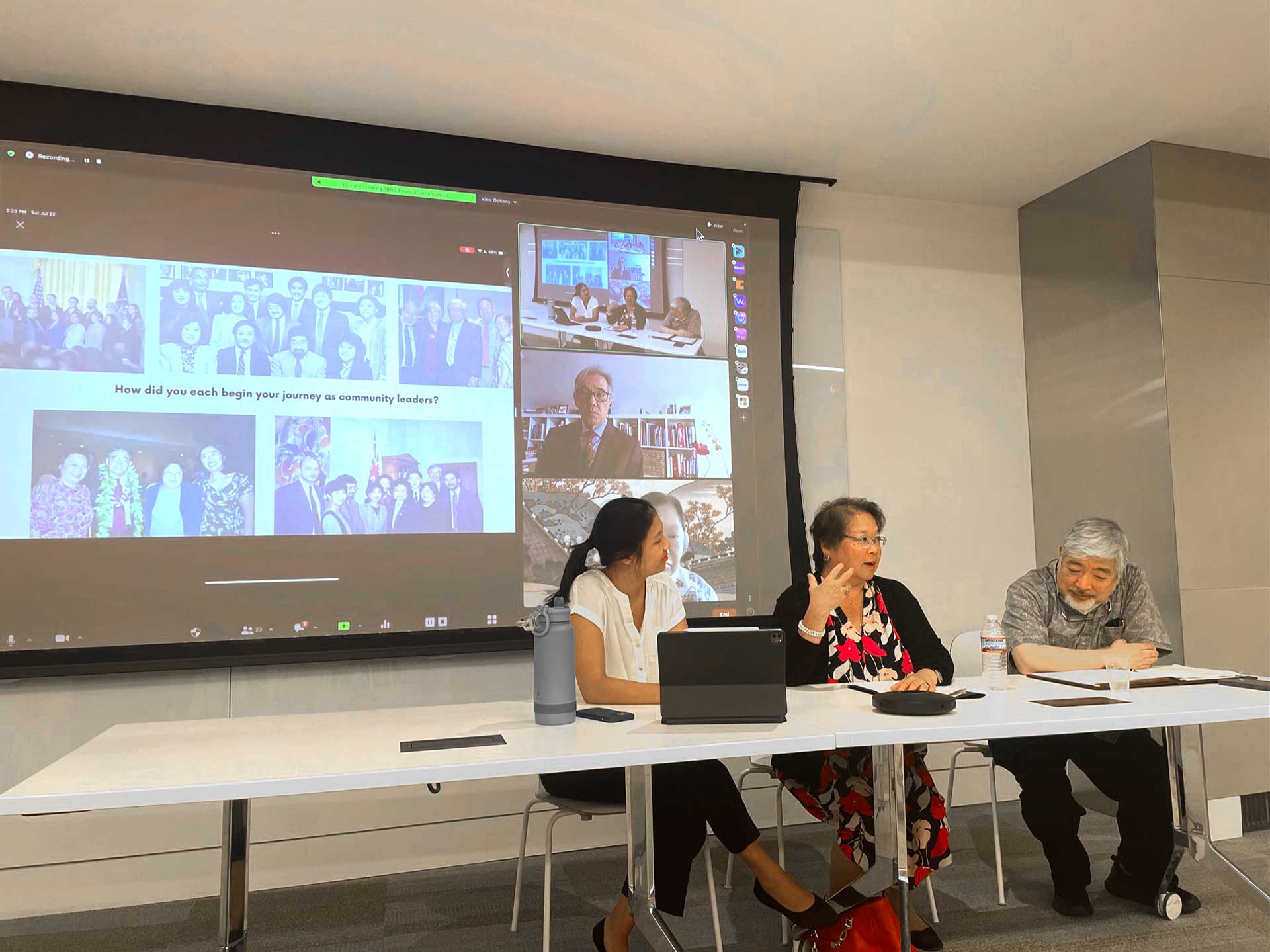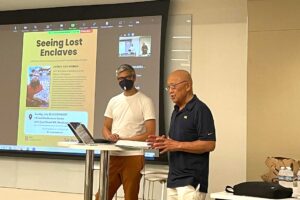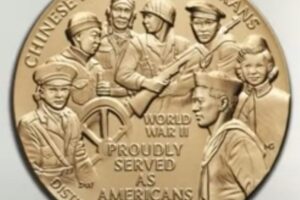Written by Alina Lee and Amanda Young (1882 Foundation interns, summer 2023).
The 1882 Foundation hosted a conversation with four key changemakers who played monumental roles in building today’s AAPI nonprofit organizations at the I Street Conference Center on Saturday, July 22. The speakers were: Phil Tajitsu Nash, professor in the Asian American Studies Program at the University of Maryland and the founding Executive Director of the Asian Americans Advancing Justice AAJC; Paul Igasaki, appointed by President Bill Clinton to the U.S. Equal Employment Opportunity Commission from 1994-2002; Karen Narasaki, appointed by President Barack Obama to the U.S. Commission on Civil Rights in 2014 and the former Executive Director of AAAJ/AAJC; Daphne Kwok, current VP of DEI AAPI audience strategy at AARP, formerly appointed by President Barack Obama to serve as Chair of the President’s Advisory Commission on Asian American Pacific Islanders.
The speakers discussed their journey to becoming community leaders, early organizing efforts, memorable moments, AAPI representation in government, and advice for future generations.
When discussing his experience organizing as a Japanese American, Igasaki noted the importance of broader racial and pan-ethnic solidarity. “We found that being Asian American made us more powerful. If we worked together, and then worked with other people of color who were fighting discrimination, we were all more powerful,” he said.
Kwok described the AAPI nonprofit community as a “family,” noting that they worked together for decades and have stayed friends ever since. Nash added that they all held different roles but were part of a greater “social justice ecosystem.”
“We all stand on the shoulders of those who came before us,” Narasaki said.
For the future generation of AAPI leaders and activists, this is what our panelists say to you:
“Find a way to make a difference, to fight the hardest fights. Find people who will make you believe you can overcome, even though it doesn’t look so good sometimes. Inspiration is something that keeps us going.” – Paul Igasaki
“It’s important to have connections with people you don’t 100% agree with because you learn something when having to defend your own position, and sometimes there are kernels of truth that can help lead you to better strategies, better solutions.” – Karen Narasaki
“Develop a Cultural Competence Toolkit so you can work with a broad range of people and fight against those who are trying to limit us.” – Phil Tajitsu Nash
“I encourage the younger generation to hold more of these sessions with the elders and the OGs to ask about what it was like back then, so people can learn about, appreciate, and take that wisdom to move the community forward.” – Daphne Kwok
Talk Story Director Stan Lou said that the event was a “wonderful example of the importance of maintaining the dialogue between generations within the AAPI community.”
“We have to understand the points of view that are held by the respective older and younger generations in order for us to be united in our efforts to advocate for social justice. We need to be open and authentic with each other, each expressing their views and listening respectfully,” Lou said.
This event was organized and moderated by 1882 Foundation intern Alina Lee. “When I first heard snippets of stories about the early days of AAPI nonprofit work in D.C, I immediately knew this was a story every generation needed to hear. These individuals persisted despite challenges and changed the AAPI experience,” Lee said. “As a young professional, it was an honor to engage in conversation with these trailblazers and learn from them. I hope that the community continues to engage in intergenerational conversations so that we can learn from each other and advance the rights of AAPIs the best we can, all together.”
The entire event recording is available below:
Special thanks to speakers Phil Tajitsu Nash, Paul Igasaki, Karen Narasaki, and Daphne Kwok; 1882 Foundation staff; and I Street Conference Center staff for their help and support.



